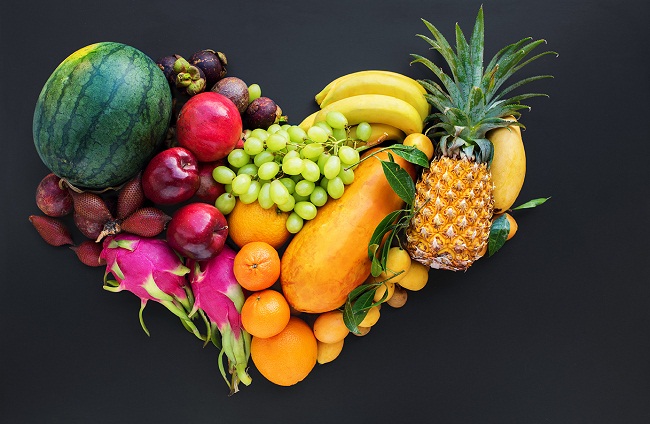There are really two types of people in this world – those who like fruits and vegetables and those who despise them. Right from childhood, it becomes very difficult to make children eat certain fruits and vegetables. The more one tends to force them to eat fruits and vegetables, the lesser they want to. While they could have avoided diabetes with fruits and vegetables early on, they tend to avoid fruits for diabetes control after getting diabetes.
Yes. You read that right. There are many people who believe that consumption of fruits increase their blood sugar levels due to the sugar content in them. Even as the entire medical community screams the benefits of fruits for their fiber content and the presence of antioxidants, vitamins, and minerals, some people with diabetes avoid fruits for diabetes control. Let us find out if fruits are really harmful for people with diabetes.
Importance of fruits in diet
Fruits are colorful, aromatic, and refreshing. Just refer to the dietary guidelines of any country; they would all emphasize on the inclusion of fruits and vegetables in a balanced diet as they contains high amounts of dietary fiber, vitamins, minerals, essential electrolytes, antioxidants, and phytochemicals. With all these ingredients, fruits are true nutrition powerhouses.
Benefits of fruit consumption
- Improves digestion
- Good for gastrointestinal system
- Reduces risk of cardiovascular diseases
- Good for mental health
- Prevents stroke
- Reduces risk of many types of cancer
- Reduces risk of kidney stones
- Helps regulate blood pressure
- Reduces cholesterol
- Repairs tissues
The list goes on, but these points should be enough for anyone to understand that fruits are the best things that could have ever happened. However, when it comes to the inclusion of fruits in a diabetes diet plan, the question of high sugar content in fruits tends to raise questions. Are fruits good for people with diabetes? Are there fruits that are good for diabetes and bad for diabetes?
Fruits and diabetes
The National Institute of Nutrition recommends the intake of 100 gm of fresh fruit for an adult every day. This is the minimum requirement needed in order to keep the body healthy and disease-free. In the case of people with diabetes (both diabetes type 1, and diabetes type 2) they are recommended to reduce their intake of carbohydrates, added sugars, and foods that contain high amounts of sugars. This is to achieve their target blood glucose levels and HbA1c.
When it comes to fruits, though many studies suggest that consumption of green leafy vegetables and fresh fruits reduce the risk of getting diabetes, the scenario among people with diabetes seems to be dominated by the opinion that they need to avoid fruits for diabetes control.
Fruits and HbA1c control – What research says
Many types of research were conducted to find out if fruits have an adverse affect on diabetes and glycemic control. One such study consisted of two groups, both newly diagnosed with diabetes – one group that consumed fruit up to 125 gm per day and the other up to 51 gm.
At the end of the study, it was found that there was no difference in the HbA1c of both groups. That means that fruit consumption did not harm them. This is good news to people who avoid fruits for diabetes.
In another study done on younger patients with diabetes type 1, it was found that inclusion of high-fiber carbohydrates and natural sugars improved their glycemic control and HbA1c levels.
In yet another study conducted on the effect of fructose (a type of sugar) on glycemic control, it was found that fructose coming from fruits had no harm on the overall glycemic control and HbA1c. On the other hand, fructose in fruit beverages, fruit juices, and sweetened milk products had adverse effects on glycemic control and HbA1c. This means that the source of food has a bearing on the effects of sugar.
Finally, in probably the biggest research conducted in China consisting of 500,000 people over a period of 7 years, it was found that consumption of fruit decreased the chances of diabetes complications especially of the small blood vessels, and increased the life expectancy.
To conclude, it is not advisable to avoid fruits for diabetes control. It is better to consume fruits at least 3 to 4 times a week in order to reduce the risk of diabetes complications. At the same time, it is better to avoid sugary beverages, packed fruit juices, and sweetened milk products.
The verdict – Fruits to avoid in diabetes
Fruits are important ingredients of your diabetic diet. Even though you have diabetes and even though fruits have high sugar content in them, it is advisable to have fruits.
You should have fruits in a diabetic diet even though fruits have sugar because the food source has more bearing than the sugar content. Sugar in fruits is not the same as sugar in manufactured foods. Our bodies can metabolize sugars in fruits much better than added sugars.
Refined sugars can increase blood sugar levels and lead to diabetes complications, but natural sugars contained in fruits do not increase blood sugar levels as they come along with water, fiber, vitamins, and antioxidants which help in regulating blood sugar levels.
Since unlike wheat, cereals, and other forms of carbohydrates, fruits have a much lower glycemic index, it is safe to consume fruits in moderation. However, fruits like watermelon and pineapple have high glycemic index. They should be had once in a while rather than avoiding them. Finally, it is not advisable to avoid fruits for diabetes control.











